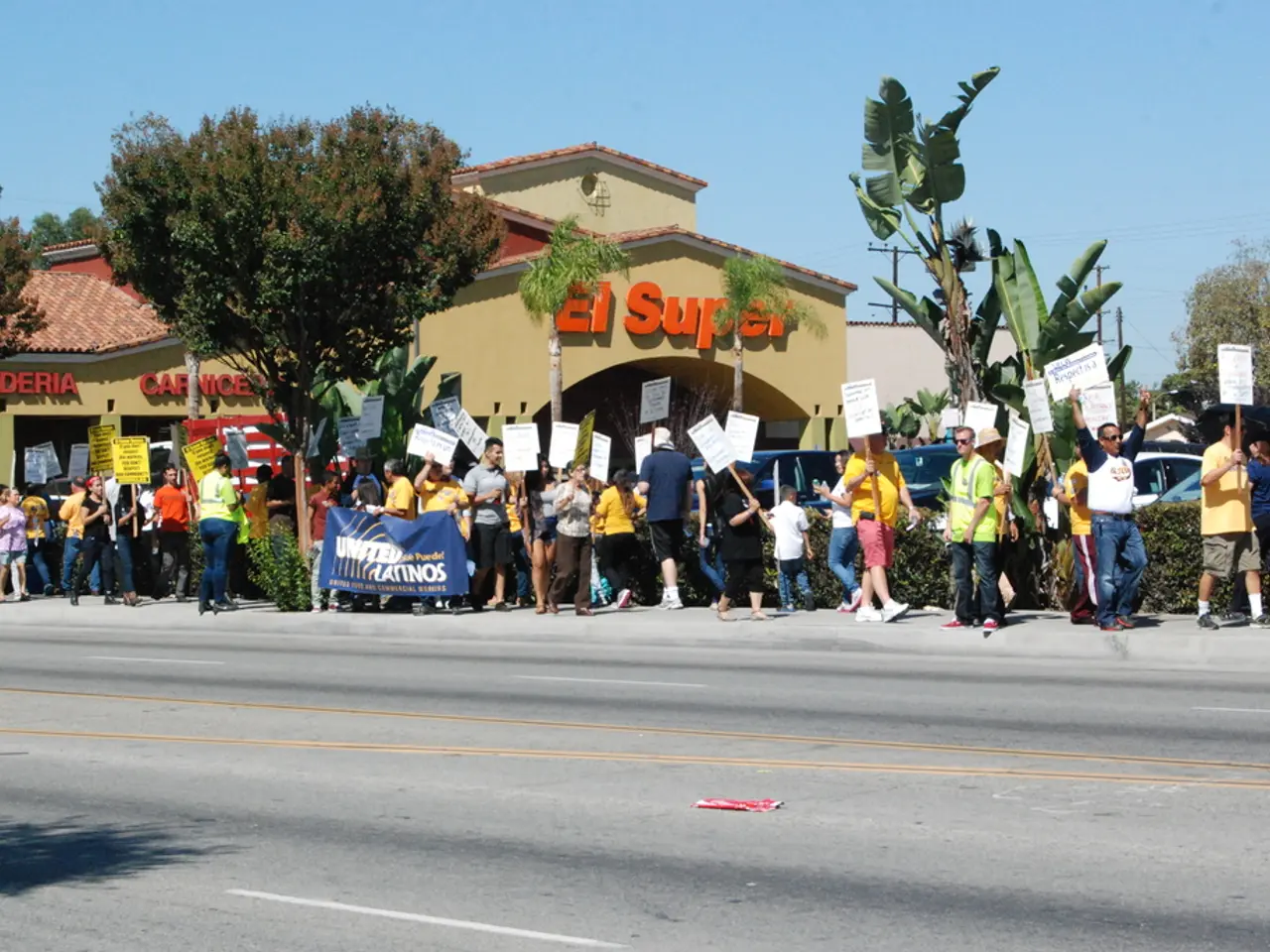Improving Justice Availability: Routes to Equality and Fairness in Legal Proceedings
In the pursuit of public interest law, enhancing access to justice for marginalized communities is a critical objective. A combination of strategies is being employed to achieve this goal, leveraging technology, community-based services, and education.
One of the key approaches involves the development of inclusive digital platforms and mobile applications. These tools, designed with community input, offer accessible, user-friendly legal information and services, accommodating diverse digital literacy levels and language needs.
Collaborations with local organizations and civil society are another essential component. By building trust, conducting outreach, and providing culturally sensitive support, these partnerships help marginalized groups utilize legal technologies effectively.
AI-powered grievance redress mechanisms and chatbots also play a significant role. These simplify complaint submission and guide users to appropriate resources, including multilingual and dialect interpretation, thereby lowering barriers to justice processes.
Clinical legal programs at Historically Black Colleges and Universities (HBCUs) and other community-centric law schools address issues relevant to marginalized communities, such as affordable housing, immigration, and economic justice. These programs provide hands-on, localized support and equitable urban development advocacy, complementing technology-based solutions.
Addressing digital divides and systemic biases in AI is equally important. This involves civil society leaders in technology development, investing in digital literacy training, and prioritizing fairness in algorithm design to prevent exacerbating inequalities.
Hosting culturally relevant tech education and engagement events further extends access to innovations in legal services and economic opportunities within marginalized communities.
When marginalized communities gain access to justice, they experience positive outcomes like the protection of rights, fostering social cohesion, and economic stability. However, social barriers, such as lack of knowledge about legal rights and processes, can deter individuals from pursuing justice.
Effective access to justice initiatives can lead to the development of policies supporting equitable treatment. Legal aid and representation are essential components of access to justice, providing essential support to marginalized communities. Financial barriers, such as high legal fees and costs, prevent many from seeking legal assistance.
Access to justice supports marginalized communities, ensuring they can engage with legal systems that might otherwise overlook their needs. Public interest law catalyzes broader societal change, enhancing access to justice for all. Public interest law advocates for the rights of marginalized groups, inherently promoting access to justice.
Case studies demonstrate that enhancing access to justice requires understanding unique challenges faced by diverse populations. Legislative approaches to improving access to justice involve enacting laws and policies that facilitate the provision of legal services to underserved populations.
Funding initiatives aimed at enhancing access to justice include government funding for legal aid programs, philanthropic grants, and partnerships between private law firms and public interest organizations. Systemic barriers manifest in inadequate legal aid services and inefficient court systems.
Technology and online resources offer immediate assistance and self-representation opportunities for individuals. Community-based legal services strive to deliver support directly within communities, empowering residents to navigate the legal system effectively.
Innovative approaches to enhance access to justice include technology, community-based legal services, and education and outreach initiatives. Public interest lawyers often take on cases that would otherwise remain unrepresented due to financial constraints. Access to justice is a fundamental principle in public interest law, ensuring equitable treatment under the law for every individual.
- In alignment with public interest law, collaborations with local organizations and civil society, as well as advocacy through case studies, aim to foster policies and legislation that increase access to justice for marginalized communities.
- The development of AI-powered grievance redress mechanisms, inclusive digital platforms, and mobile applications, along with technology and online resources, are innovations in policy-and-legislation and politics that cater to the general-news of expanding access to justice for underserved populations.








